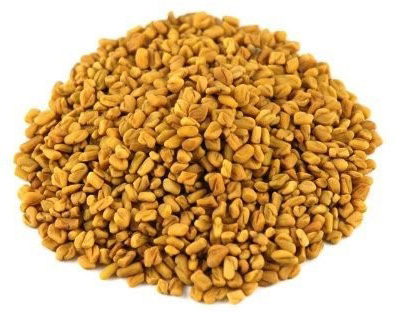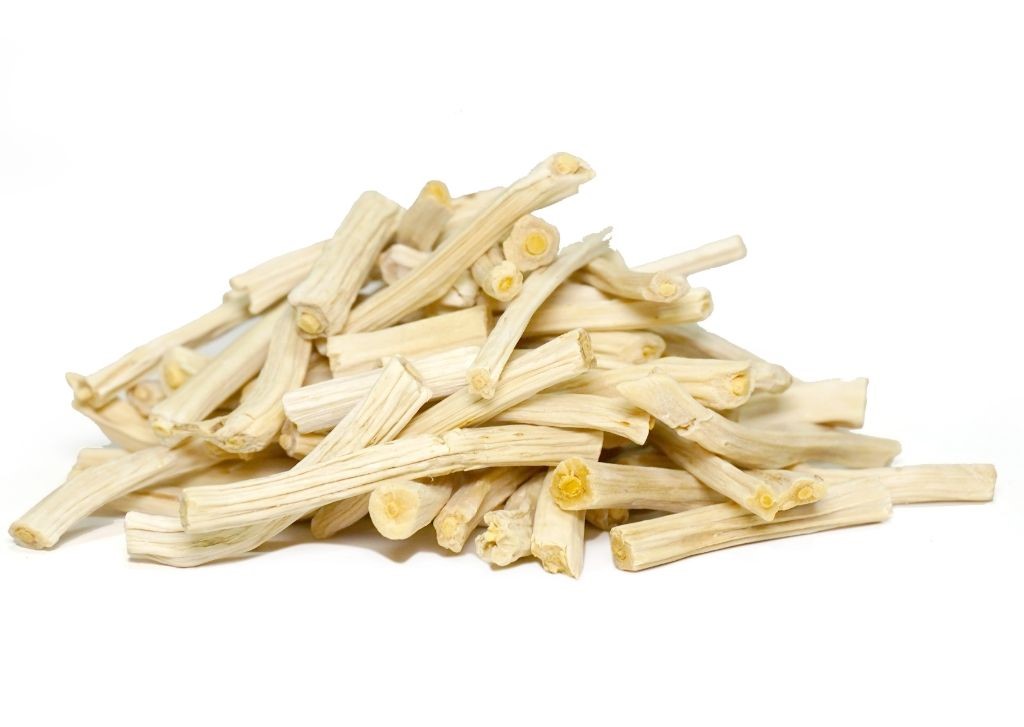

Fenugreek (Trigonellafoenum-graceum), an annual plant from the Fabaceae family, is rich in fiber, gum, and bioactive compounds. Its seed extracts are valued for medicinal benefits, including hypocholesterolemic, antibacterial, antidiabetic, hepatoprotective, and anticancer properties. Shatavari (Asparagus racemosus), a perennial climbing herb from the Asparagaceae family, is primarily valued for its tuberous roots, widely used in Ayurvedic medicine. With growing global interest in herbal remedies, its demand has surged. It supports lactation, hormonal balance, menstrual health, digestion, immunity, and reproductive health. However, the extreme bitterness of fenugreek and shatavari extracts limits consumer acceptance. BARC has developed a cost-effective, GRAS-compliant enzymatic method for de-bittering, enhancing their palatability.
Fenugreek (Trigonellafoenum-graceum), an annual plant from the Fabaceae family, is rich in fiber, gum, and bioactive compounds. Its seed extracts are valued for medicinal benefits, including hypocholesterolemic, antibacterial, antidiabetic, hepatoprotective, and anticancer properties. Shatavari (Asparagus racemosus), a perennial climbing herb from the Asparagaceae family, is primarily valued for its tuberous roots, widely used in Ayurvedic medicine. With growing global interest in herbal remedies, its demand has surged. It supports lactation, hormonal balance, menstrual health, digestion, immunity, and reproductive health. However, the extreme bitterness of fenugreek and shatavari extracts limits consumer acceptance. BARC has developed a cost-effective, GRAS-compliant enzymatic method for de-bittering, enhancing their palatability.
Fenugreek (Trigonella foenum-graceum) is an annual plant belonging to the family Fabaceae. Fenugreek is grown worldwide but India is the largest producer. Rajasthan accounts for 80% of production in India. It finds its use as spice, herb and vegetable. Seeds of fenugreek spice have medicinal properties such as hypocholesterolemic, lactation aid, antibacterial, gastric stimulant, for anorexia, antidiabetic agent, hepatoprotective effect and anticancer. It is well known for its fiber, gum, other chemical constituents and volatile contents. Extracts from seeds are used as pharmaceutical formulations to treat various problems in traditional and modern medicine.
Shatavari (Asparagus racemosus) is a perennial, climbing herb from the Asparagaceae family. The most valuable part of Shatavari plant is its tuberous roots, which are long, fleshy, and used extensively in Ayurvedic medicine. With the increasing global popularity of herbal and Ayurvedic medicine, the demand for Shatavari has risen significantly. It is widely used for various medicinal properties such as lactation aid, helps in hormonal balance, menstrual health, managing acidity and inflammation in the digestive tract, immune booster and reproductive health.
However, extracts of both fenugreek and shatavari are extremely bitter to taste thus limiting their consumer acceptability. BARC has developed a cheap and easy methodology for de-bittering of these extracts to increase their consumer acceptability. It is prepared by using all GRAS status chemicals and enzymes.
RAW MATERIALS
All the raw materials required are available in the local market.
EQUIPMENTS
SPACE
POWER
MANPOWER

